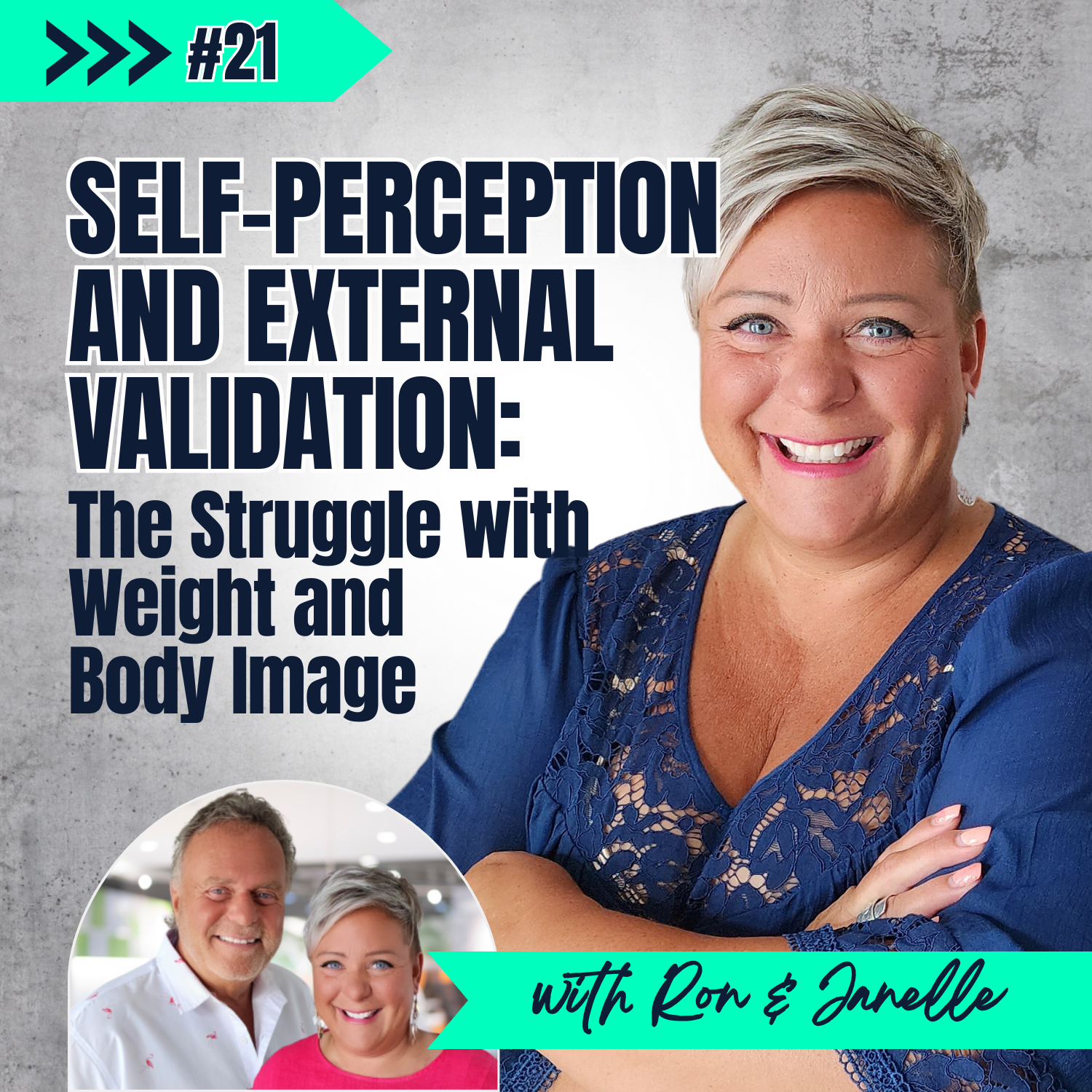E21: Self-Perception and External Validation - The Struggle with Weight and Body Image
From Self-Criticism to Self-Compassion: Healing Your Relationship with Your Body
For many of us, body image is deeply personal — and complicated. It’s not just about how we look in the mirror; it’s about what we believe those reflections say about our worth. In this week’s episode, Janelle gets candid about her 20-year journey with weight, sharing how it’s affected her health, confidence, and sense of identity.
But here’s where it gets really interesting: instead of focusing on diets or quick fixes, we ask a deeper question — why do we feel so much pressure to change our bodies in the first place? Is it about health, happiness, or the approval of others? And what happens when we stop measuring our worth by someone else’s standards?
What We Learned About Body Image and Validation
Where the pressure really comes from: Much of the weight we feel about our bodies isn’t self-created — it’s shaped by cultural beauty standards, family messages, and media that equate thinness with worth.
Why we chase approval: Many of us seek validation from others because we’ve been conditioned to believe our value is tied to how we look, rather than who we are.
What actually matters for health: True well-being isn’t about fitting a certain size — it’s about energy, mental clarity, mobility, and how we feel in our own skin.
How self-compassion changes the game: When we speak kindly to ourselves, we’re more likely to make sustainable, healthy choices — not out of shame, but out of care.
Why This Conversation Matters
Struggles with weight and body image aren’t just about food or fitness — they’re about identity, worth, and the stories we tell ourselves. These stories often come from outside influences, like cultural beauty standards, family comments, or social media comparisons, and they can quietly shape how we feel about our bodies for decades.
The good news? Stories can be rewritten. Here are simple ways to start:
Notice the narrative. When a critical thought comes up, pause and ask: Where did this belief come from? Naming the source helps loosen its grip.
Flip the script. Replace negative thoughts with neutral or compassionate ones, like “My body deserves care” or “I am more than my appearance.”
Curate your inputs. Unfollow accounts that trigger comparison and add voices that celebrate body diversity and kindness.
Practice gratitude. Each day, name one thing your body allows you to do — like hug someone you love or take a walk outside.
These small shifts help transform how we see ourselves — not overnight, but gradually, in ways that create lasting peace and self-acceptance.
Try This at Home: The “Whose Voice Is It?” Exercise
Write down a body-related thought you often have (e.g., “I need to lose weight”).
Ask yourself: Whose voice is this? Is it yours, a parent’s, society’s, or someone else’s?
Challenge it: Does this belief serve your well-being — or does it keep you stuck?
Replace it with a kinder truth (e.g., “My body deserves care, not criticism”).
How to apply this in real life:
Do this check-in anytime you feel self-critical — at the mirror, trying on clothes, or scrolling social media.
Keep a list of your “kinder truths” on your phone or journal to revisit when old thoughts resurface.
Over time, you’ll start to naturally pause and reframe without needing the written prompts.
The takeaway: When we untangle self-perception from external validation, we reclaim the power to define health, beauty, and worth for ourselves — and find freedom in the process.
